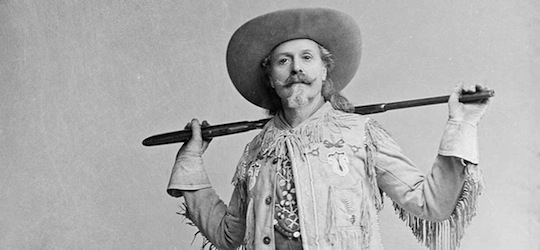2:30-4:00 PM Session 15: Multicultural Legacies of the Wild West
Patty Limerick, Chair
Ch. Didier Gondola, Buffalo Bill Cody in Kinshasa: Westerns, Violence, and Masculinity in the Heart of the Tropics
In the early 1950s, young people in Kinshasa, Belgian Congo, became infatuated with the figure of Buffalo Bill, with his feats and exploits, and with his flamboyant looks as images of the famed plainsman unreeled on the screens of their makeshift movie parlors. The man that Theodore Roosevelt so vaunted and rhapsodized as “the most renowned of those men, steel-thewed and iron nerved, whose daring opened the West to settlement and civilization” became the paragon of masculinity and the embodiment of manhood for many young people in Kinshasa. Buffalo Bill, or rather his romanticization through the lenses of Hollywood, enabled those young viewers to forge new standards of masculinity in a colonial environment that denied them manhood and, instead, essentialized the Congolese man as a “grand enfant” (big child) and, worse, as a macaque (monkey). Accordingly, they called themselves Bills and adopted the swagger, the scripts, and the silences of their eponymous hero.
Didier Gondola is Chair of the history department and Professor of African History and Africana Studies at IUPUI. He earned a Ph.D. in African History from the Université Paris 7. His publications include numerous books, articles and chapters on popular cultures (music, fashion, gambling, and memory), gender and postcolonial issues in Central Africa and the African diaspora in France. In 2008-09, he was selected as a US Department of State Fulbright scholar and carried out both research and teaching activities at the Université de Kinshasa, Congo. He developed his manuscript on the Tropical Cowboys (IU Press, 2016) in 2011-12 as a EURIAS senior fellow at the Nantes Institute for Advanced Studies, in France. He has just returned from a yearlong research leave at the Collegium of Lyon, France, and worked on a collaborative project that focuses on the emergence of HIVs in colonial Africa. In addition, he is preparing a biography of André Matswa Grenard, a political activist and charismatic visionary who campaigned for emancipation in France and the French Congo in the 1920s and 1930s.
Danielle Haque, Arab Performers and the Wild West
My paper analyzes archival materials such as advertisements, newspapers reviews, and dime novel covers that feature the Arab and Arab American performers of Buffalo Bill’s Wild West, engaging questions concerning the construction of Arab identity in the U.S. and its relationship to U.S. fantasies of the West and East, the reification of racial ideologies, and discourses of imperialism.
Danielle Haque is an assistant professor of English at Minnesota State University. Her most recent article, “The Postsecular Turn and Muslim American Literature” appears in American Literature.
Alessandra Magrin, The Enduring Legacy of Buffalo Bill in Italian Cinema: From Silver Screen to Spaghetti Western
From the dawn of the cinematic industry, up to the widely acclaimed Spaghetti Westerns, Buffalo Bill has represented a lasting and prosperous source of inspiration for Italian cinematographers. Starring as an early protagonist in the film dal vero by pioneer-director Filoteo Alberini (1906), serving as the major inspiration for the proto-spaghetti western Buffalo Bill a Roma (1949), as a “victim” of the 1970’s revisionist wave in the comedic-western Non toccare la donna Bianca (1974), William Cody and his Wild West’s show have comfortably dwelled in the Italian collective imagination for most of the 20th century. Italians have, in turn, managed to appropriate the myth of the American West that he divulged, and to accommodate it in such a way as to fit their own nationalistic needs, as well as to respond to global trends. In this picture, cinema “merely” represents the most popular side of a wider “Western” fascination that encompasses several other facets of Italian cultural life, such as literature, music and graphic arts, and that has few rivals world-wide.
Alessandra Magrin is completing her PhD in American History at the University of Strathclyde Glasgow, in Scotland. She is also an Associate Editor (Italian tours) of the Papers of William F. Cody. Her article “Rough Riders in the Cradle of Civilization: Buffalo Bill’s Wild West Show in Italy and the challenge of American cultural scarcity at the fin-de-siècle”, was recently published in the European Journal of American Culture.
